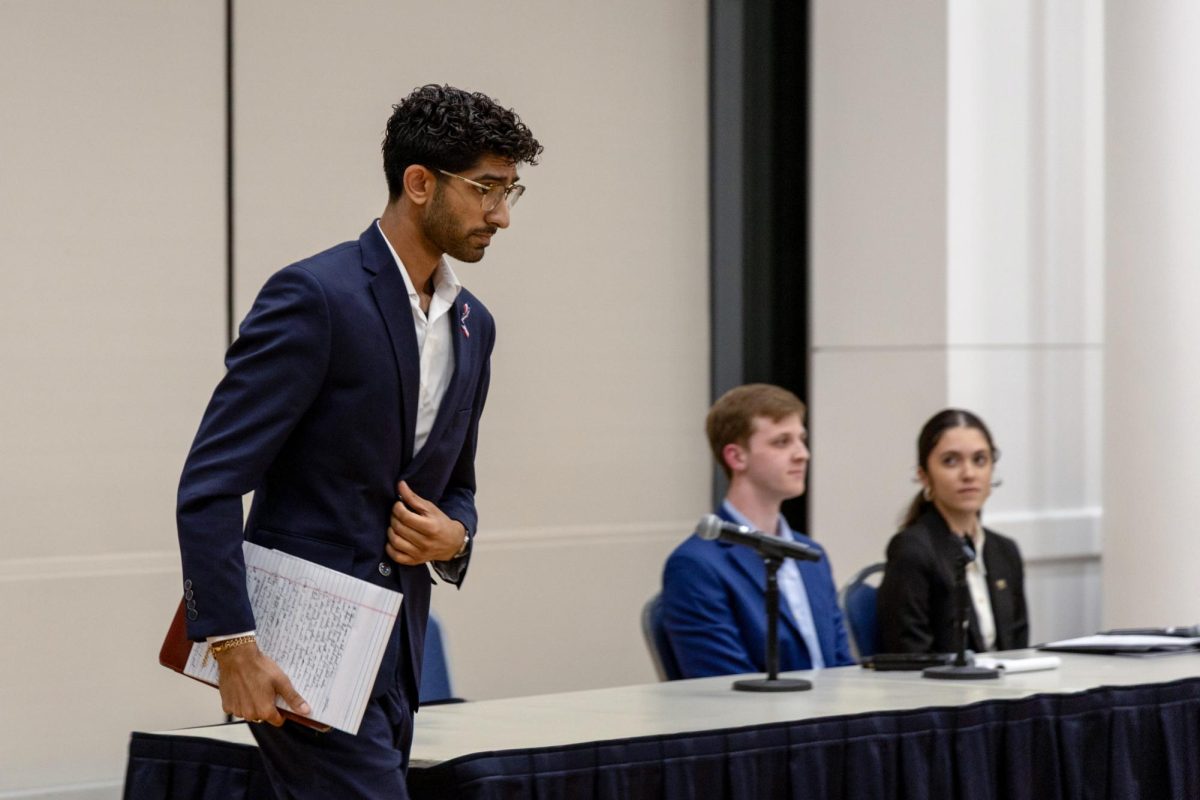Before GW’s sustainability leaders decide whether to pressure top finance officers to divest potentially millions of dollars from fossil fuel companies, they want proof that it’s a student priority.
Shannon Ross, the sustainability office’s student outreach coordinator, said advocates need to demonstrate widespread support through a campus-wide vote if they want the administrators’ help to push the issue with the University’s investment office.
So far, student support has flagged and campus advocates have missed deadlines to put the issue to a campus-wide vote.
“At this point, we are waiting for the students to take the next step and get the support of the student body, which I think will be critical in demonstrating student interest,” Ross said.
Fossil Free GW, a year-old student activist group, is urging investment officials to pull any investments that make up its $1.38 billion endowment out of companies like ExxonMobil, Shell and BP. Groups of students at top colleges across the country have rallied around divestment, though few have had success.
GW activists have collected about 700 signatures – which members admit is far from the 2,500 needed for the Student Association to hold a referendum vote on the issue. But senior Anthony Bucci, a member of Fossil Free GW, said he will take up the challenge.
“This is the semester of escalation, in organizing terms. This is where we take our campaign to the next level, have a really strong public presence, and get it out there,” said Bucci, who has also written opinions pieces for The Hatchet.
That will be a tough sell at a University trying to do everything it can to bolster its endowment. Nearly every college around the country has balked at pulling assets away from fossil fuel companies, mostly out of concern over losing money. Activists have found some success at small colleges like Unity College in Maine.
Meghan Chapple Brown, director of the Office of Sustainability, said she has been advising the investment office informally for the past year to explore “a framework for a sustainable investment strategy for GW.”
She declined to describe the scope of GW’s investments in fossil fuel companies or corporations with sustainable business models. The University does not release details of its investment portfolio, which is mostly run by outside managers.
“The idea is to better understand sustainability trends such as climate change and freshwater scarcity, and their potential long-term implications for GW’s investment portfolio,” she said.
Fossil Free GW had hoped to put the issue on the ballot this week during the Student Association elections – the first to make mention of divestment efforts – but failed to collect enough names in time.
The group hopes to build momentum next year with the leadership of two students who were elected on campaigns that highlighted divestment.
Victoria Goncalves, who was elected Thursday as a Columbian College of Arts and Sciences senator, said her position will allow her to prove that divestment is a necessary step for GW, which has invested millions in green building upgrades and sustainability programs.
She plans to contact administrators at universities that have successfully divested in order to get a better understanding of the next steps for GW.
“This is something that the University needs to be doing,” Goncalves said. “The University tries to look like they’re being very environmentally friendly, but where we invest our money is really important, and supporting fossil fuels with our money goes against basic environmental principles.”






